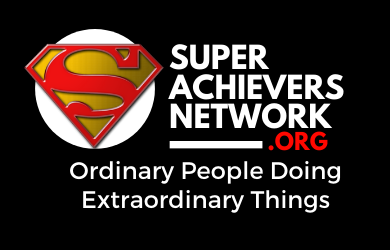Intro:
In Napolean Hill's classic book "Think and Grow Rich", he states,
“TRULY, "thoughts are things," and powerful things at that, when they are mixed with definiteness of purpose, persistence, and a BURNING DESIRE for their translation into riches, or other material objects.”
If you can control your thoughts, you control your life. Taking control of your thoughts can make you happier, less stressed, and better equipped to solve problems to attain your goals.
Yet controlling the flood of thoughts that fill our brain can be as hard as controlling the flow of electricity flowing through our electrical inputs to our homes.
When you can harness and control the direction of your thoughts, and put them to use, bringing up what we desire most, we can win the fight.
Read on for some tips on taking ownership of your thoughts and your life.

First Relax and Let Those Thoughts Just Come
The first step in getting control of your thoughts is to just relax in a quiet spot, and just let your thoughts happen. Listen to them all in a non-judgmental way.
As soon as you try to "Not" think, your brain just does the opposite. Before we start exerting any control, let your thoughts flow and pay attention to your dominating ones.
The human brain is an incredible organ capable of making imaginative leaps, recalling memories, and finding insights at a moments notice. It is impossible to control every thought, but as they come, for now, don't repress them.
Try to let your thoughts come and go without any attachment, rather than repressing those you dont want to have.

Observe Your Thoughts Without Judgement
Here are some suggestions:
- Stick to objective, concrete facts. What are the facts surrounding your thoughts? Consider what events led to your thinking, what can be done to create a different outcome, and what specifically could you do to improve your thought process.
- Reframe your thinking. Instead of looking at your thoughts and negatively blaming yourself, reframe them in terms of how you can change a negative into a positive.
- Write them down. If you are having trouble, write your thoughts down and read them back to yourself.

Take Action To Address Your Thoughts
- Oftentimes we cannot control our thoughts because we are scared to act on them.
- Once you make these plans, you need follow through with them.

Set Some "Thinking Time" Aside Every Day

Develop Your Critical Thinking Skills
Critical thinking is the art of using your sense of reason to analyze ideas and dig deeper to get to your true thinking potential.
Critical thinking isn't about thinking harder, it's about thinking accurately and analytically to bring the greatest level of productivity.
Honing your critical thinking skills can open up a lifetime of intellectual curiosity which I hope never ends.
But the journey isn't all rosy.
Critical thinking requires a lot of the "D-word," (discipline).
Staying on track takes a combination of discipline, motivation, and the ability to take an honest look at ourselves.

Question Your Assumptions
To start critically thinking, these assumptions may need to be questioned to get a deeper understanding of their applicability.
- What does it mean to question assumptions? Einstein questioned the assumption that Newtonian laws of motion could accurately describe the world.
He developed an entirely new framework for looking at the world by redescribing what he thought had happened, starting from scratch.
Our assumptions may not be that encompassing, but looking at an assumption can give you greater perspectives. - We can question assumptions in a similar way. Why do we feel the need to eat in the morning, even when we're not hungry?
Why do we assume that we'll fail when we haven't even tried?
Questions like these are helpful in getting to a deeper truth or an undesputable understanding. - What other assumptions are we taking for granted that might crumble upon further examination? Continue to question assumptions to determine if a deep investation is warrented.

Investigate For Yourself
Just because it was published in a magazine or broadcast over TV doesn't mean it's necessarily true.
We hope the infomation is coming from a trustworthy source, but many times it isn't.
We don't have time to check every piece of information we hear, but with more information available to us than any time in history, it is our responsibility to do our own research.
- Get in the habit of using your instinct to investigate questionable pieces of information. If your gut isn't satisfied with an explanation, ask the person to elaborate. If you don't question a fact, read about it or test it yourself.
One test is worth a thousand opinions.
- Soon enough, you'll build up a pretty good sense of what deserves more research and what you've determined to be true in your own judgment.

Question Things
You've already read about questioning assumptions and questioning authority figures. Now, I'm asking you to question...everything?
Asking questions is perhaps the quintessential act of critical thinking. Don't take anything for granted.
Research until you find your answer. Finding your own answers is the bedrock of critical thinking.

Understand Your Own Biases
Human judgement can be subjective, frail, and spiteful at times.
Understanding what your biases are and where they may affect how you deal with information is another critical step to consider.
Let the facts speak for themselves, and paint the picture of what is really happening.
Stay objective in interpreting those facts. That means adjusting for our personal biases.

Think Several Moves Ahead

Nothing beats the transformation of a great book. Great writing is one way to stimulate your critical thinking by examaning how experts present ideas in their books.
There are books on any subject imaginable to allow you to keep your research accurate. Reading is essential for sharpening your critical thinking.

Conclusion
To be able to contol your thoughts means that you can control your life.
Those thoughts can be sharpened with deeper analysis and questioning.
We are all responsible to challege our assumptions and get to the truth of the matter. Reserach and investigation can go a long way to making informed decisions for your life.
Some final tips:
Understand all your options. When you want to use your critical thinking skills, it helps to know what your options are. Lay them all out there, and then weigh the options. We often pigeonhole ourselves into believing that we're stuck with only one option, when other options are available.
Surround yourself with people smarter than you. If you really want to learn, get better at something, and develop critical thinking skills, hobnob with people smarter than yourself.
Not only can you bet that the smart people themselves rub shoulders with people smarter than they. You can also bet that some of that intelligence is going to permeate your perspective.
Keep learning your own version of the truth by getting to the facts and adjusting them to hep you get everthing you want in life.
Question
What thoughts have you been critically analyzing? What have you learned?
Leave a commet below.
Watch This Video for More Inspiration!

Thank You
Hope it helps you in some way.
Please post a comment below, and let me know what you think.
Share it with the Super Achievers you know, and join our mailing list for more helpful tips.
The information you share with someone could be the difference between success and failure in their life.
And remember,
"Make something great happen today."

